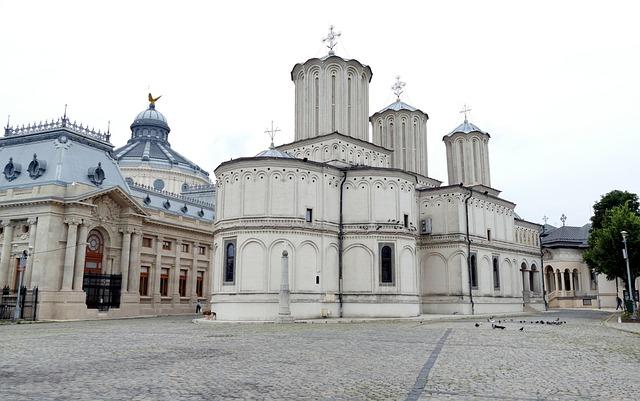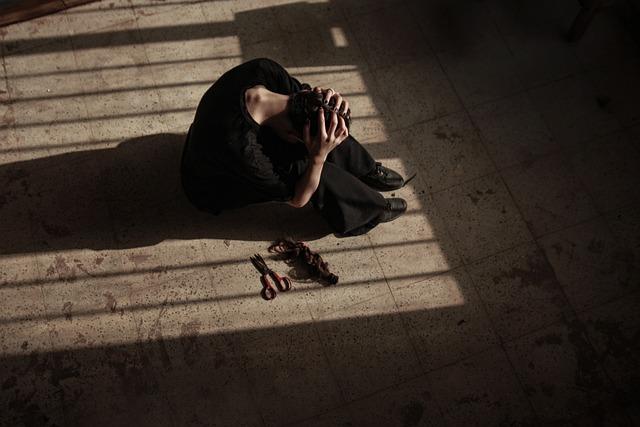In a dramatic escalation of political tensions, serbian Members of Parliament ignited flares and unleashed smoke grenades within the confines of Parliament, a striking display of dissent that underscored the deepening rift among the countryŌĆÖs political factions. The incident, captured on live broadcasts, swiftly drew national and international attention, prompting questions about the stability of governance in Serbia. Amidst ongoing debates over pressing social issues, the spectacle of MPs resorting to pyrotechnics highlighted the volatility of the political climate and raised concerns over the effectiveness of parliamentary dialog in addressing the needs of a divided populace. This article delves into the events surrounding this unprecedented protest, the reactions from various political leaders, and the implications for SerbiaŌĆÖs democratic institutions.
Serbian MPs Spark Chaos with Flares and Smoke Grenades in Parliament
In a dramatic display of political protest, Serbian lawmakers ignited flares and expelled smoke grenades within the walls of the National Assembly, creating an atmosphere charged with tension and chaos. The unprecedented act, intended to denounce governmental decisions, transformed the parliamentary session into a spectacle, attracting attention from both the media and onlookers. Opposition members claimed these actions where necessary to express their outrage over pressing issues, including economic policies and social justice, setting a new precedent for political dissent in the country.
As the smoke enveloped the chamber, it became clear that the discord among parliamentarians was not merely performative. Key concerns highlighted by the dissenting MPs included:
- Government Corruption: claims of misuse of funds and lack of transparency.
- Social Inequalities: Growing disparities affecting the working class and marginalized communities.
- Freedom of Speech: Allegations regarding state repression of dissent and media freedoms.
This alarming incident has raised questions regarding the stability of political dialogue in Serbia and whether such tactics may become a common fixture in parliamentary proceedings.

Understanding the Context of Unrest in Serbian Politics
The recent incidents within the Serbian parliament,characterized by the igniting of flares and smoke grenades,reflect a deeper turbulence within the political landscape of Serbia. This chaotic spectacle is not merely a spontaneous outburst; rather, it signifies a culmination of rising tensions fueled by various factors, including political dissatisfaction, economic struggles, and social injustices. As factions within the parliament clash over policy directions and governance, the public’s faith in political institutions continues to erode, leading to an environment ripe for unrest. Voter disillusionment,especially among the youth,has intensified calls for radical reforms and accountability from elected officials.
To better comprehend this unfolding situation, one must consider several influences shaping public sentiment and political actions:
- Economic Instability: High unemployment rates and inflation contribute to widespread dissatisfaction.
- Corruption allegations: Ongoing claims of corruption have eroded trust in the government.
- Media Censorship: Reports of limited press freedom stifle open dialogue and engender frustration.
- Nationalism: The resurgence of nationalist rhetoric complicates political discourse, polarizing opinions.
The interplay of these factors serves as a backdrop to the dramatic events observed within the parliament chamber. below is a brief overview of recent incidents that exemplify the mounting tensions:
| Date | Incident | Participants |
|---|---|---|
| March 15, 2023 | Flares ignited | Opposition MPs |
| April 20, 2023 | Smoky protests indoors | Coalition members |
| May 5, 2023 | Brawls between parties | Various factions |

The Role of Parliamentary Protests in Democratic Expression
Parliamentary protests frequently serve as a pivotal form of democratic expression, where elected officials and citizens alike voice their dissent against governmental actions or policies. The recent incident within the Serbian parliament, when MPs ignited flares and released smoke grenades, exemplifies the lengths to which politicians may go to amplify their grievances and disrupt standard proceedings. Such dramatic measures not onyl capture the attention of the media but also engage the public in vital discussions surrounding legislative transparency and accountability.
these protests symbolize more than mere theatrics; they reflect a deep-seated frustration with perceived governance failures. Key elements that characterize the impact of such protests include:
- Visibility: Protests ensure that issues are foregrounded in public consciousness, generating media coverage and sparking debate.
- Portrayal: They allow marginalized voices within the parliament to articulate their concerns, representing wider societal discontent.
- Pressure Mechanism: such acts can place pressure on the ruling party and prompt action or change, especially when they resonate with citizens’ opinions.
Ultimately, parliamentary protests can function as a catalyst for democratic engagement, reminding legislators of their accountability to the electorate. As societies evolve,the methods and manifestations of such expressions will undoubtedly continue to shape the political landscape.

Safety and Security Measures Needed to Prevent Future Incidents
The recent upheaval within the Serbian parliament, marked by the use of flares and smoke grenades, serves as a stark reminder of the pressing need for enhanced safety and security protocols in governmental institutions. To mitigate the risk of such incidents recurring, a comprehensive approach involving multiple stakeholders is essential. Key measures should include:
- Improved Surveillance Systems: employing advanced CCTV systems and real-time monitoring to ensure constant vigilance within parliamentary premises.
- Access Control Protocols: Implementing stricter access controls, including screening procedures for all attendees, to prevent unauthorized items from entering the building.
- Emergency Response Training: Conducting regular training sessions for security personnel and parliament members on how to effectively manage crisis situations.
- stakeholder Collaboration: Fostering cooperation between parliament security teams and local law enforcement to ensure a unified response to potential threats.
Additionally, a thorough review of existing legislation related to public assembly and protest is necessary to strike a balance between freedom of expression and maintaining order within governmental settings. The establishment of a dedicated task force to assess and recommend ongoing improvements in security protocols can further enhance the effectiveness of measures implemented. A perhaps useful framework could be summarized as follows:
| Measure | Description |
|---|---|
| Patrolling Security Forces | Regular patrols within and around parliamentary premises to deter potential disruptions. |
| Public Awareness Campaigns | Informing citizens about the respect for legislative processes and the importance of lawful assembly. |
| Legal Reforms | Updating laws to establish clear consequences for disruptive behavior in legislative settings. |

Analyzing Public Reactions to the Disruption of Legislative Process
The recent incident in SerbiaŌĆÖs parliament, where MPs set off flares and smoke grenades, has drawn a mixture of outrage and support from the public, highlighting a deepening divide within the nation. Many citizens viewed these actions as a desperate plea for attention to the perceived erosion of democratic norms, while others criticized the spectacle as a futile stunt that undermines the seriousness of legislative duties. The incident serves as a stark illustration of how frustration with the political climate can manifest in unconventional and disruptive ways.
Social media reactions have been especially polarized, with users expressing a variety of opinions on the appropriateness of such dramatic measures. Key themes emerging from public discourse include:
- Expression of Discontent: Many individuals empathized with the MPs, seeing the flares as a symbol of resistance against an ineffective government.
- political Stunt or Genuine Outrage? Critics labeled the actions as attention-seeking behavior that further alienates the public from the legislative process.
- Calls for Reform: A faction of commenters suggested that such extremes highlight the urgent need for reform in how political grievances are addressed within state institutions.
| Public Sentiment | Percentage |
|---|---|
| Support for MPs’ Actions | 45% |
| Criticism of Disruption | 35% |
| Calls for Political Reform | 20% |

Recommendations for Conflict Resolution in Serbian Governance
In light of the escalating tensions and chaotic scenes within the Serbian Parliament, it is crucial to prioritize conflict resolution mechanisms that encourage constructive dialogue among lawmakers and stakeholders. To cultivate a more harmonious political climate, the following strategies are recommended:
- Dialogue facilitation: Establish regular forums where MPs can discuss contentious issues in a controlled environment, promoting understanding and respect among differing viewpoints.
- Third-Party Mediation: Engage neutral mediators to assist in areas of critically important conflict, ensuring that all parties have a chance to voice concerns and work towards consensus.
- Educational Programs: Implement training sessions that focus on negotiation skills and conflict management for MPs,allowing them to approach debates with a collaborative mindset.
Additionally,systemic reforms and transparency in parliamentary procedures may alleviate frustrations and foster trust among citizens. Strategies might include:
- Accountability measures: Enforce strict consequences for violent or disruptive behavior, ensuring MPs understand the implications of their actions.
- Public Engagement Initiatives: Create opportunities for public input on legislative matters,reinforcing the idea that governance is a collaborative process.
- Regular Review Sessions: Conduct frequent evaluations of parliamentary effectiveness and public sentiment, allowing for timely adjustments in governance strategies.

Concluding Remarks
the recent incident in the Serbian parliament, where MPs ignited flares and smoke grenades, highlights the escalating tensions within the political landscape of the country. This provocative act not only underscores the deep divisions among lawmakers but also reflects broader societal frustrations over governance and accountability. As Serbia grapples with emerging challenges both domestically and on the international stage, the response from government officials and the public will be crucial in shaping the future of its democratic institutions. Moving forward, it is essential for all stakeholders to prioritize dialogue and constructive engagement to navigate these turbulent waters and restore stability within the parliamentary process. The events in the parliament serve as a reminder of the urgent need for reform as Serbia continues to seek a path towards a more cohesive and effective governance model.
















